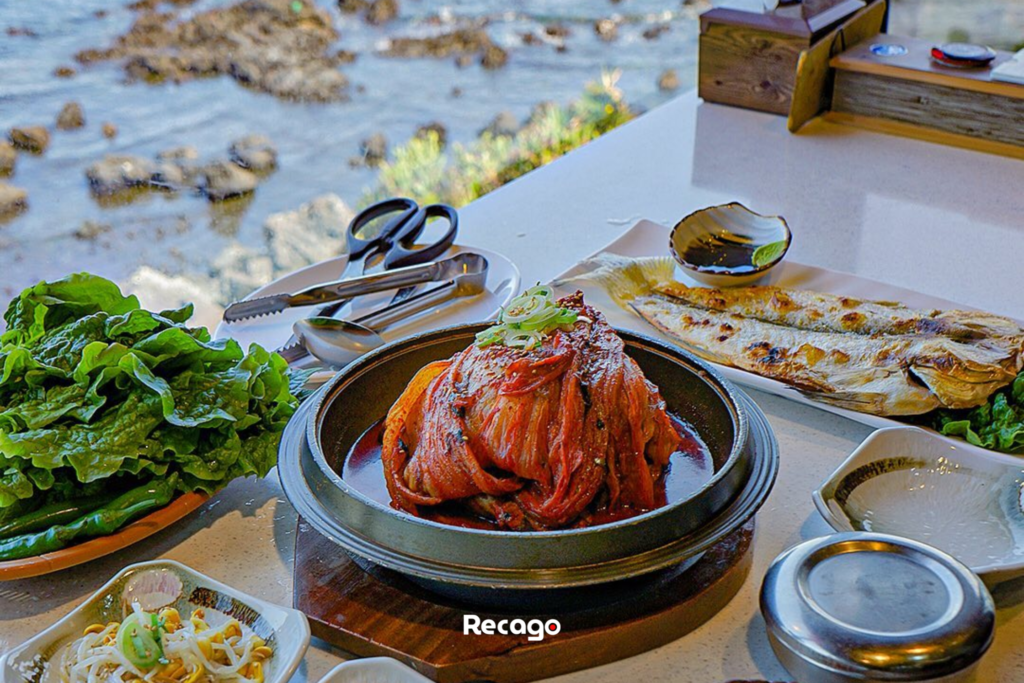Jeju Island is more than just a paradise of natural beauty; it’s a gastronomic haven offering dishes that reflect its unique environment and heritage. Jeju Island food is renowned for its focus on fresh, locally sourced ingredients, often highlighting the bounty of the surrounding seas and the island’s volcanic soil.
Here, Recago will help you dive deeper into top 8 must-try Jeju Island food, exploring a signature part of Jeju’s culinary culture.
About Jeju Island
Jeju Island, located off the southern coast of South Korea, is a paradise renowned for its stunning natural landscapes, rich cultural heritage, and unique culinary offerings. Often referred to as the “Island of the Gods,” Jeju is famous for its breathtaking volcanic landscapes, picturesque beaches, and lush forests, making it a popular destination for nature lovers and adventure seekers. The island is also a UNESCO World Heritage Site, home to the iconic Hallasan Mountain and the fascinating lava tubes.

Beyond its natural beauty, Jeju is a culinary haven, offering a distinctive food culture that reflects both its island lifestyle and historical influences. From fresh seafood caught in its surrounding waters to locally-grown ingredients that feature in traditional dishes, Jeju’s cuisine is as diverse and vibrant as the island itself. Whether you’re a foodie or simply someone exploring the island’s charm, Jeju Island food is an essential part of your journey. Let’s explore the top 10 must-try dishes that will make your visit unforgettable.
Jeju Black Pork (Heuk Dwaeji) | Top 8 must-try Jeju Island food
Jeju Black Pork is unlike any other pork you’ve tasted. Raised exclusively on Jeju, these black pigs have a distinct diet that includes sweet potatoes and barley, resulting in meat with a rich, nutty flavor and tender texture. Compared to other pork varieties in Korea, Jeju Black Pork is fattier, but the fat melts beautifully during cooking, infusing the meat with a smoky, savory taste.
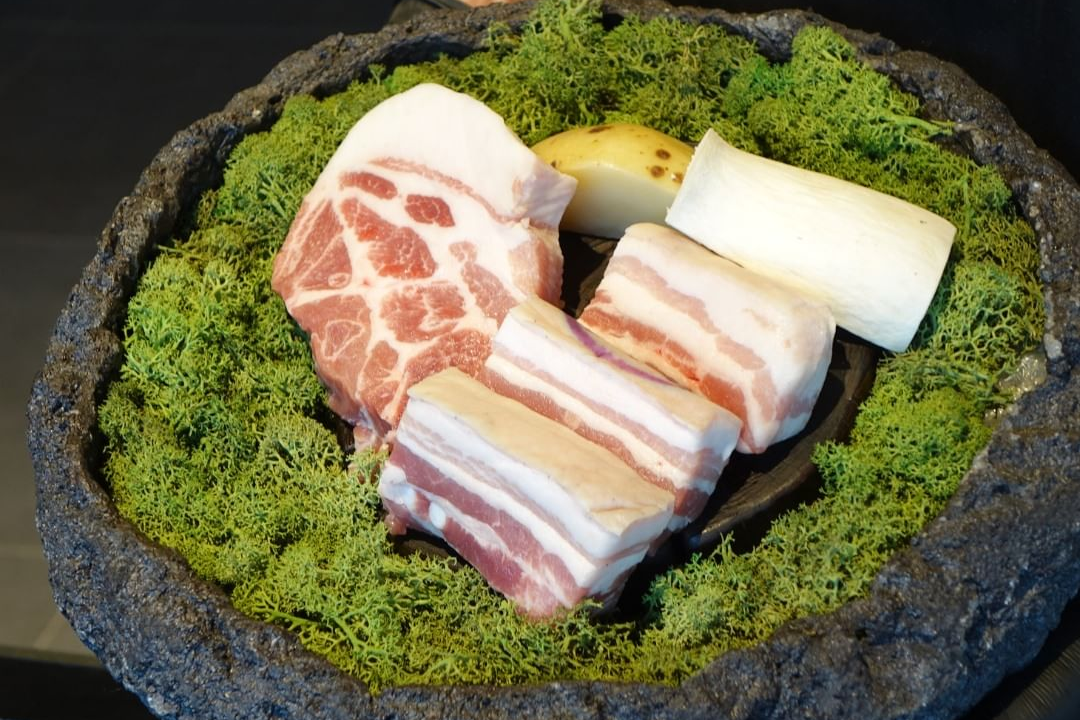
The meat is often grilled over a charcoal fire, a method that enhances its natural flavors. Some restaurants marinate the pork lightly, but most prefer to let the quality of the meat speak for itself.
How it’s served
Charcoal-grilled black pork is served alongside ssam (lettuce wraps), raw garlic, chili, and ssamjang (fermented soybean paste). This allows diners to customize each bite to their liking.
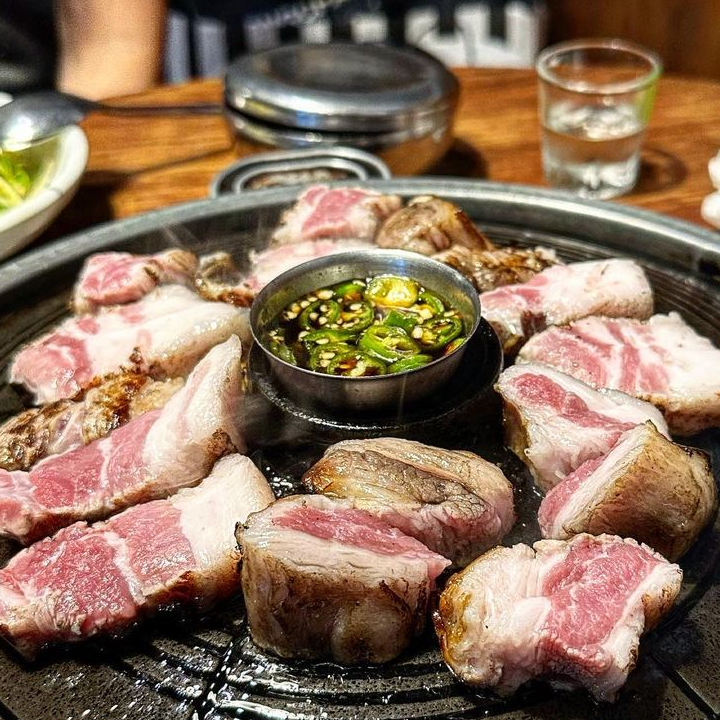
(Source: bongsteroo)
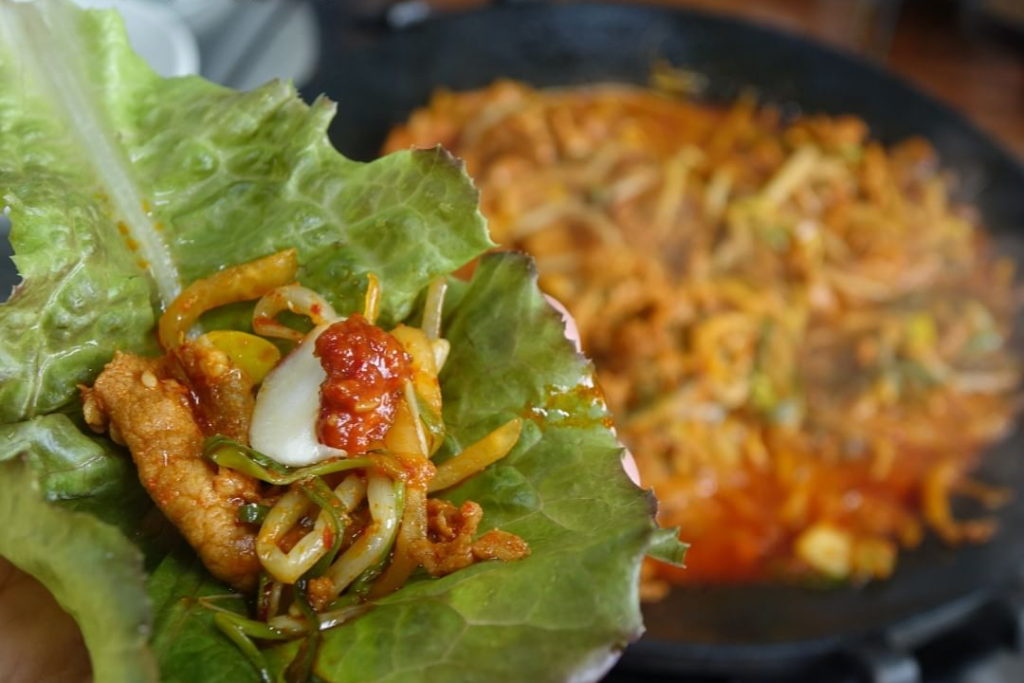
(Source: visitjeju.en)
Where to try it
Donsadon in Jeju City is a must-visit, famed for its perfectly grilled cuts of black pork.
Located in the heart of Jeju City, Donsadon is famous for its black pork, a local delicacy unique to Jeju. The restaurant serves tender, juicy black pork that’s grilled to perfection, with a rich flavor that sets it apart from regular pork dishes. Paired with fresh vegetables and traditional sides, this dish offers an authentic taste of Jeju’s culinary heritage, making Donsadon a must-visit spot for food lovers.
Abalone Porridge (Jeonbokjuk) | Top 8 must-try Jeju Island food
Abalone Porridge is a delicacy in Jeju and a testament to the island’s rich marine resources. Abalones harvested by the Haenyeo (Jeju’s famous female divers) are prized for their sweetness and firm texture. The dish itself is smooth, savory, and has subtle oceanic notes that distinguish it from porridge elsewhere in Korea.

Fresh abalone is cleaned and diced, then simmered with rice and abalone liver. The liver adds a creamy richness and enhances the flavor.
How it’s served
Garnished with a drizzle of sesame oil and chopped scallions, this porridge is typically enjoyed warm, making it a comforting dish, especially in cooler weather.
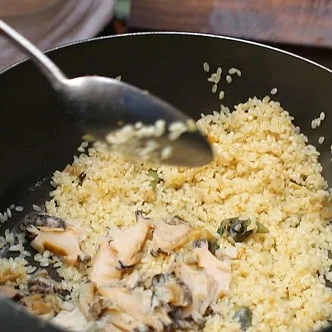

Where to try it
Myeongjin Jeonbok, located in Gujwa-eup, is renowned for its use of freshly caught abalone. Abalone porridge here made with fresh, tender abalone from the island’s waters, the dish features a rich, flavorful broth and soft rice, creating a perfect balance of texture and taste. Known for its health benefits, this porridge is both nourishing and delicious, offering a true taste of Jeju’s marine bounty. For anyone visiting the island, Myeongjin Jeonbok is a must-visit for an authentic and comforting culinary experience.
Braised Beltfish (Galchi Jorim) | Top 8 must-try Jeju Island food
Braised beltfish is a bold, spicy dish that showcases Jeju’s abundant seafood. Beltfish or hairtail, known for its tender flesh and minimal bones, is simmered in a spicy sauce, creating a balance of heat and umami. Compared to versions in other parts of Korea, Jeju’s Galchi Jorim uses larger, fresher fish caught off the island’s coasts.
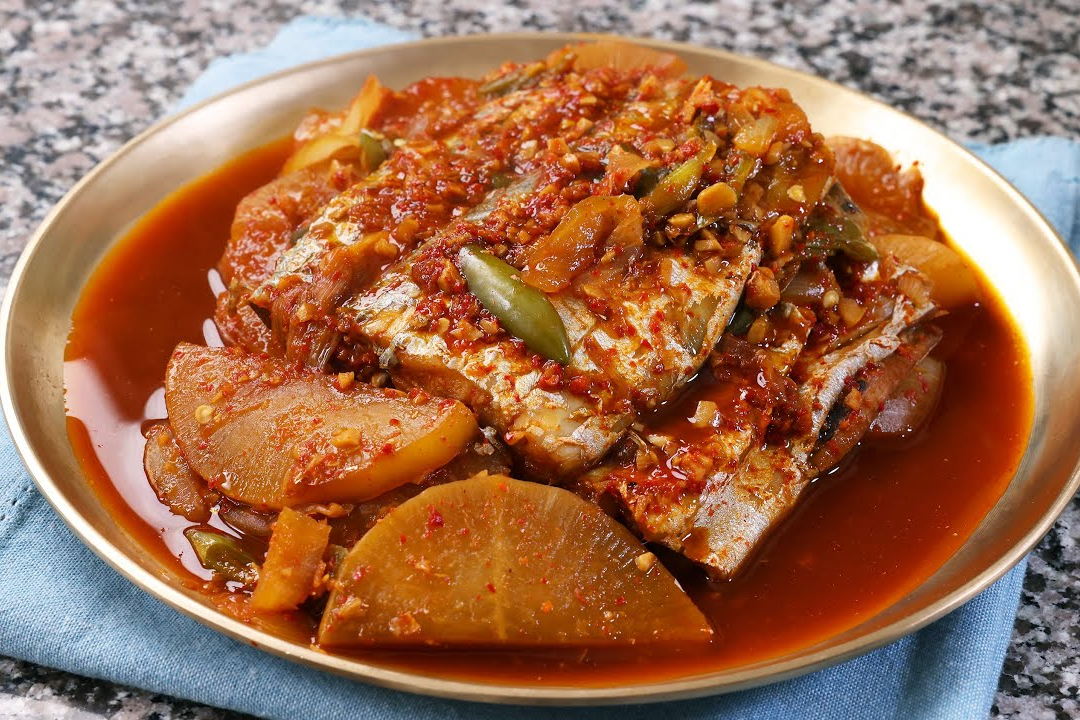
The fish is simmered in a rich sauce made of gochujang (chili paste), garlic, soy sauce, and a hint of sugar. Vegetables like radish and green onions are added to absorb the flavorful broth.
How it’s served
Served bubbling hot, it pairs perfectly with steamed rice, allowing diners to enjoy the bold flavors to the fullest.

(Source: maangchi.com)
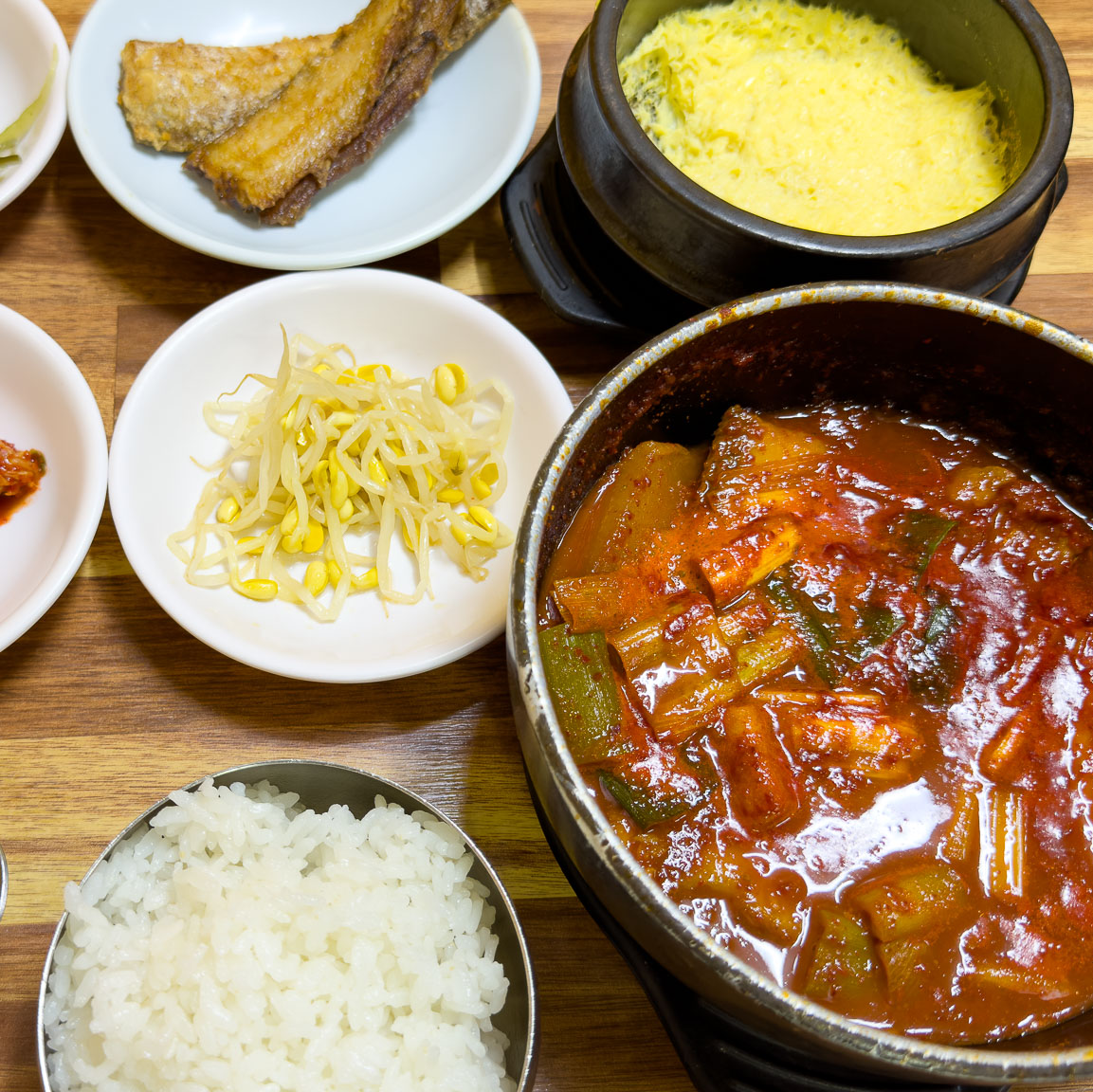
Where to try it
Negeori Sikdang in Seogwipo is famous for its Braised Beltfish, a beloved Jeju dish. The beltfish is slow-cooked in a flavorful, spicy broth, absorbing all the rich, aromatic flavors that make it a standout. The tender, flaky fish paired with the bold sauce creates a truly unforgettable taste. This dish, served with steamed rice and traditional sides, highlights the fresh, high-quality seafood Jeju is known for, making Negeori Sikdang a must-visit for seafood lovers.
Sea Urchin Seaweed Soup (Seongge Miyeokguk) | Top 8 must-try Jeju Island food
This traditional soup marries the briny sweetness of fresh sea urchin with the earthy flavor of seaweed. Jeju’s proximity to clean waters ensures the highest quality sea urchins, giving the dish its distinct sweetness and creamy texture.
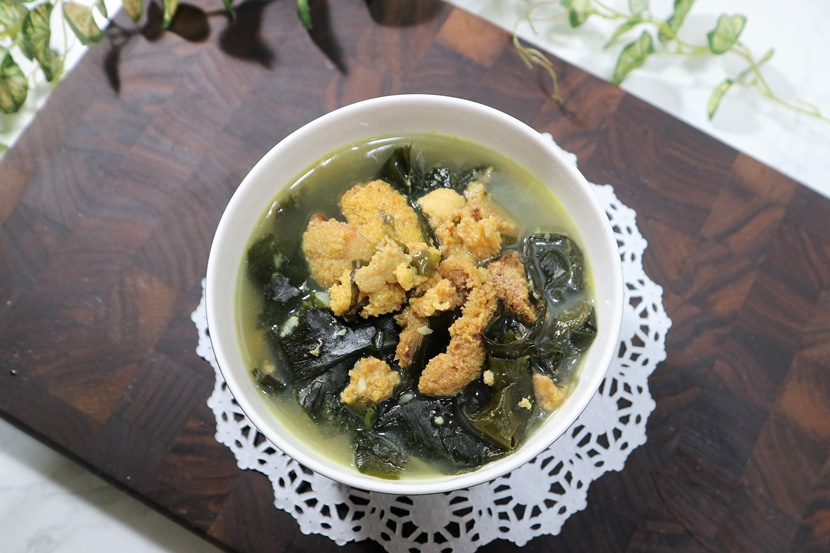
Fresh seaweed is boiled with sea urchin and a light soy-based broth. The seaweed absorbs the richness of the sea urchin, creating a delicate, umami-packed soup.
How it’s served
It’s served hot with rice, allowing diners to savor its subtle flavors as part of a balanced meal.
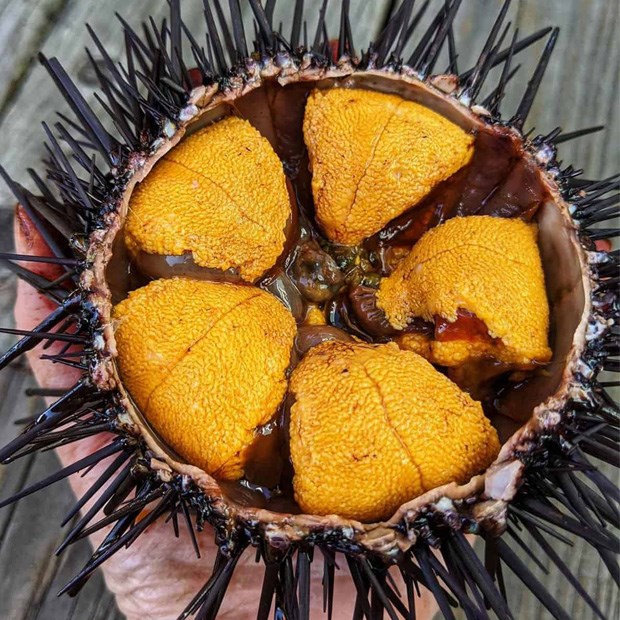

Where to try it
Haenyeo House in Jeju City offers an authentic version of this dish, prepared using seaweed and sea urchins harvested by Haenyeo divers.
Located in Jeju City, Haenyeo House is renowned for its Sea Urchin Seaweed Soup, a traditional dish that showcases the island’s fresh marine flavors. Made with tender sea urchin and rich seaweed, the soup has a delicate yet savory taste, offering a perfect balance of oceanic freshness and depth. This nourishing dish, often enjoyed with a bowl of steamed rice, highlights the skills of Jeju’s female divers, known as Haenyeo, who harvest the sea urchins. For an authentic taste of Jeju’s coastal cuisine, Haenyeo House is a must-visit spot.
Grilled Mackerel (Godeungeo Gui) | Top 8 must-try Jeju Island food
Grilled Mackerel is a quintessential dish of Jeju Island food. Jeju’s mackerel is notably fresher and fattier due to the surrounding clean, nutrient-rich waters, resulting in richer flavors.

The fish is seasoned with salt and grilled over an open flame, giving it a crispy skin while preserving the moist, tender flesh inside.
How it’s served
Typically served with steamed rice and a selection of side dishes, the mackerel’s smoky aroma and savory taste make it a staple meal.

(Source: maangchi.com)
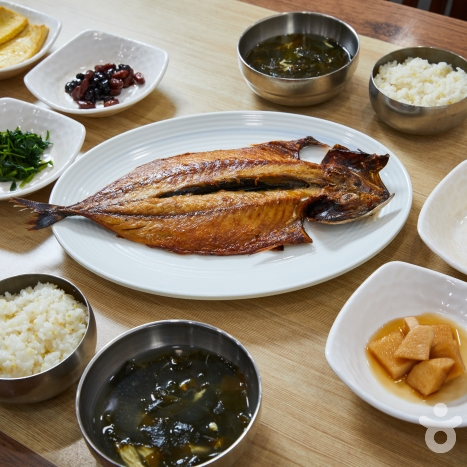
Where to try it
Hwaro Hyang in Jeju City is a favorite for its expertly grilled fish, a dish that highlights the island’s fresh, local seafood. The mackerel at Hwaro Hyang is grilled to perfection, with crispy skin and tender, flavorful meat that’s both smoky and savory. Served with a side of steamed rice and traditional banchan, this simple yet delicious dish offers a true taste of Jeju’s coastal cuisine. For seafood lovers, Hwaro Hyang is a must-visit for a satisfying and authentic dining experience.
Jeju Seafood Hotpot (Haemultang) | Top 8 must-try Jeju Island food
This hearty stew features an assortment of Jeju’s freshest seafood, including abalone, clams, shrimp, and fish. The volcanic waters around Jeju provide seafood with a uniquely clean and sweet flavor.
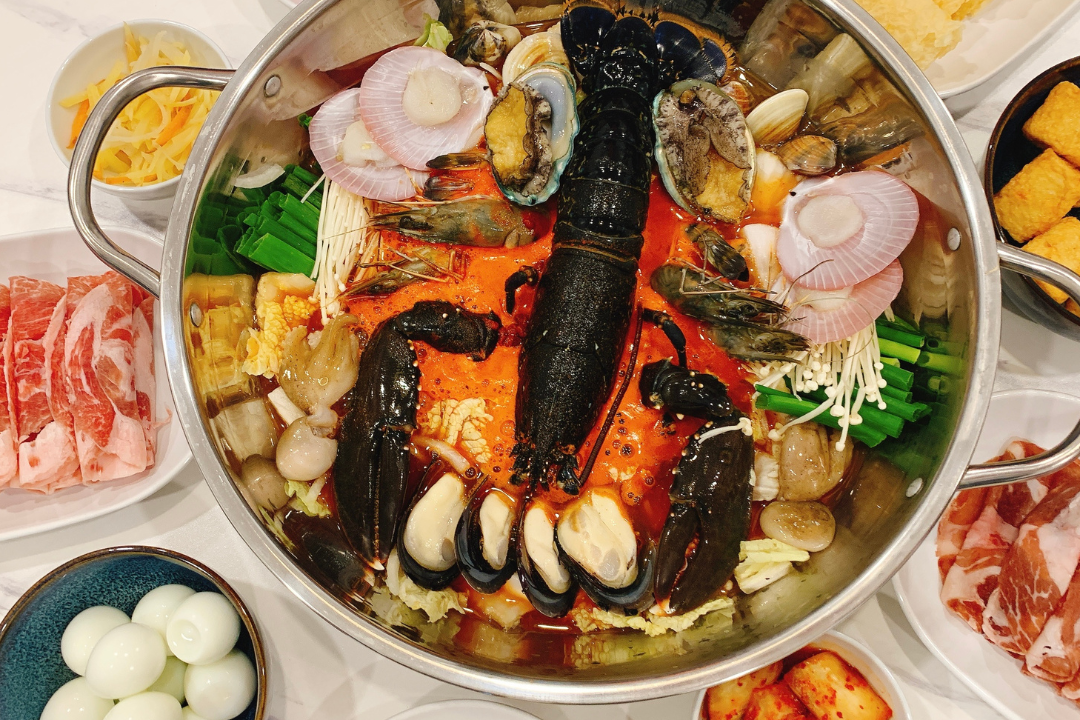
How it’s served
The seafood is simmered with spicy gochujang-based broth, vegetables, and tofu. The longer it cooks, the more flavorful the broth becomes.
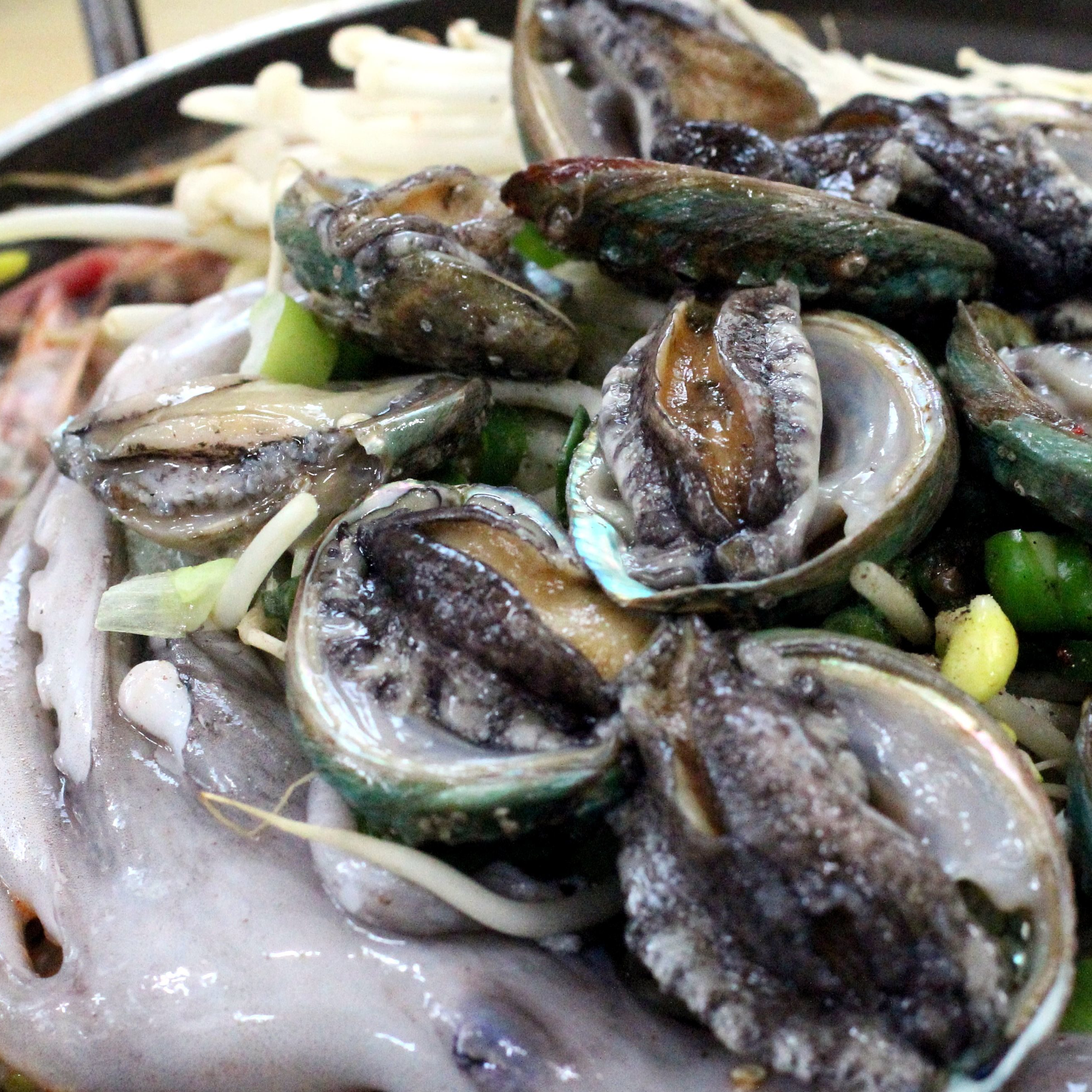
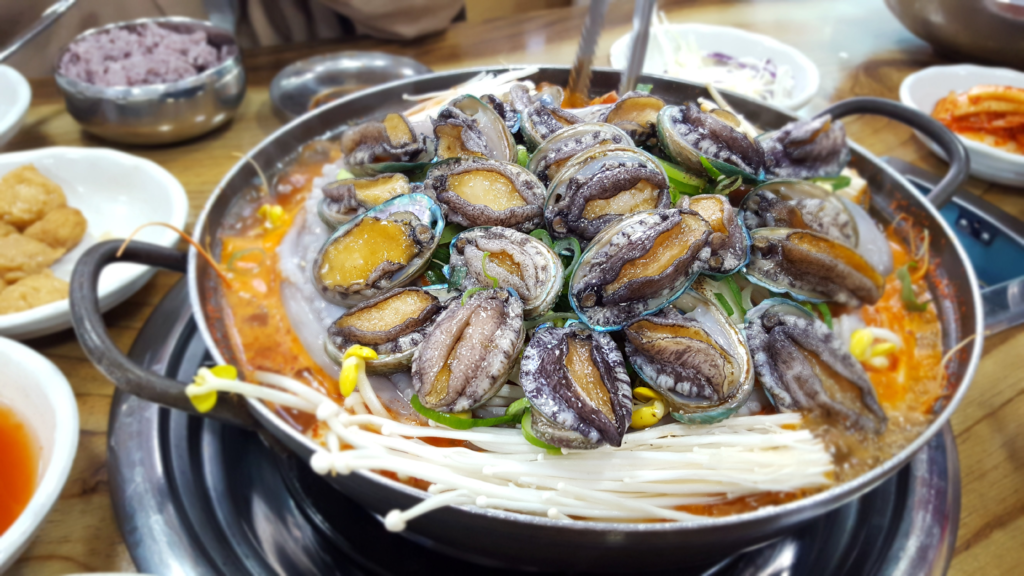
Where to try it
You can also try seafood hotpot at Hwaro Hyang in Jeju City because this restaurant also is a top spot for a rich and satisfying seafood hotpot.
At Hwaro Hyang, you’ll be served with a variety of seafood, including fish, shellfish, and prawns, all simmered in a savory broth infused with aromatic herbs and spices. The rich, umami-filled soup perfectly complements the tender seafood, creating a satisfying and warming experience. Paired with rice and traditional side dishes, this hotpot is a must-try for anyone looking to taste the best of Jeju’s marine bounty.
Jeju’s traditional rice cake (Jeju Omegi Tteok) | Top 8 must-try Jeju Island food
Omegi Tteok is a chewy rice cake made from glutinous millet dough and filled with sweet red bean paste. The millet gives the cake a slightly nutty and earthy flavor, distinct from rice cakes in other parts of Korea.
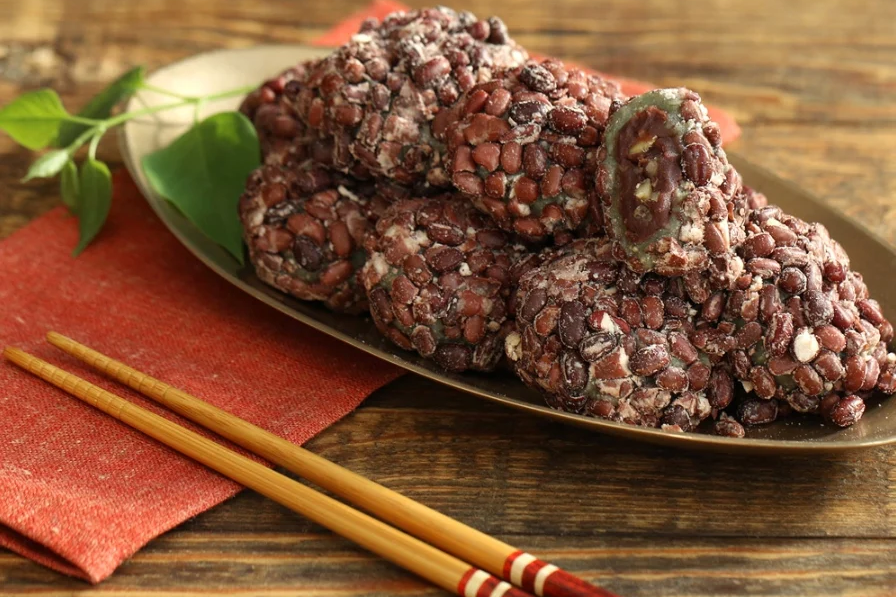
The dough is steamed, shaped, filled, and coated with ground beans or grains for extra texture and flavor.
How it’s served
Often enjoyed with tea, these rice cakes are a delightful snack or dessert.
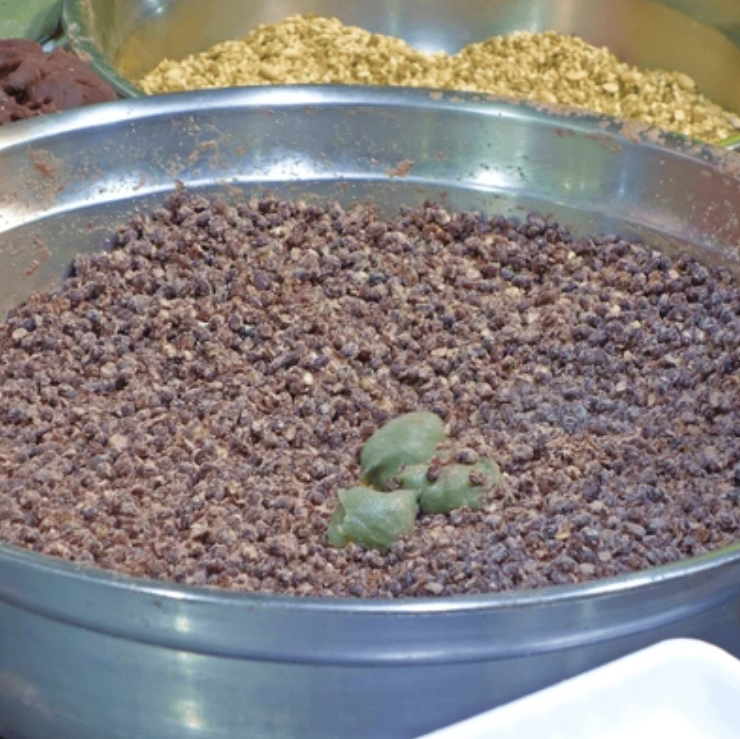
(Source: Collected)
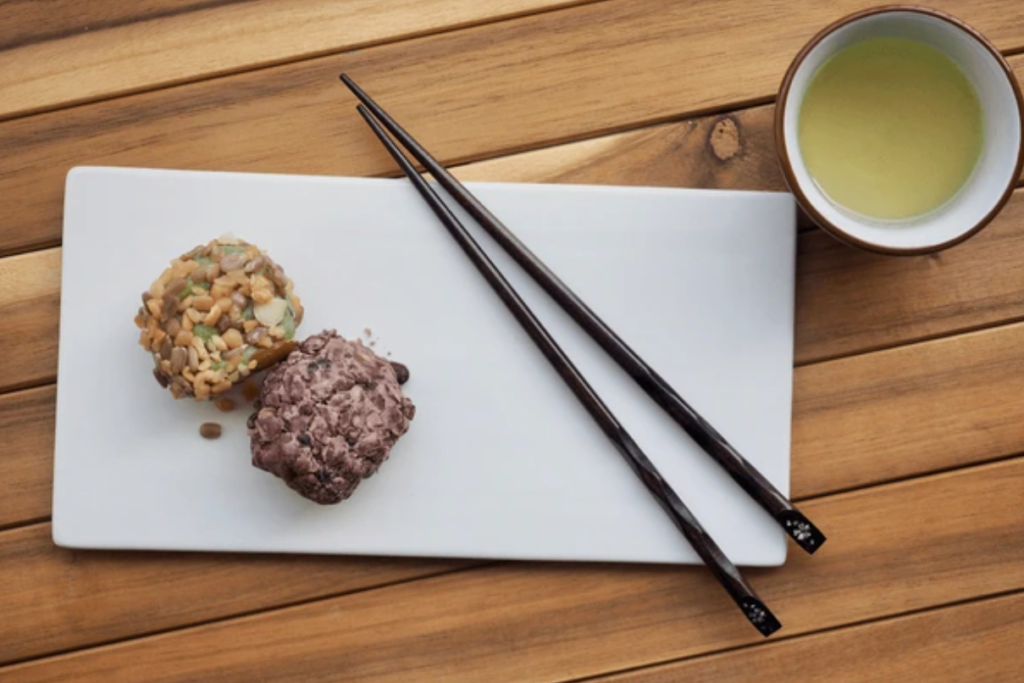
(Source: Collected)
Where to try it
Jeju Omegi Tteok House in Jeju City is the go-to place for freshly made versions of this traditional treat.
Jeju Tangerines (Hallabong) | Top 8 must-try Jeju Island food
Jeju’s Hallabong tangerines are renowned for their sweetness and vibrant flavor. Grown in the island’s volcanic soil, they are juicier and more aromatic than tangerines from other regions.
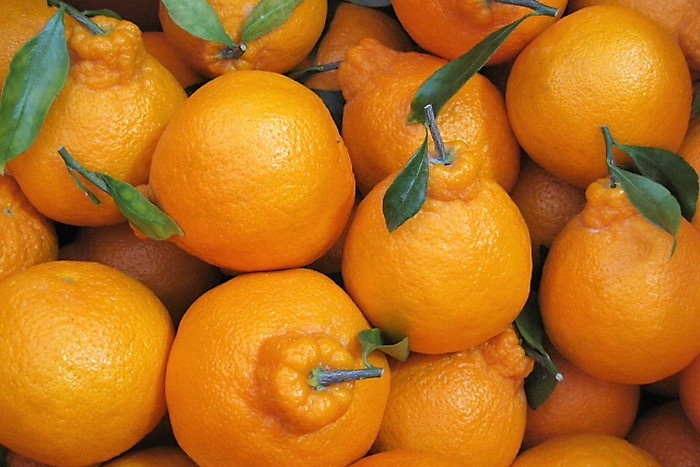
The fruit requires meticulous care during cultivation, with farmers leveraging Jeju’s mild climate and fertile soil to grow premium-quality Hallabong.
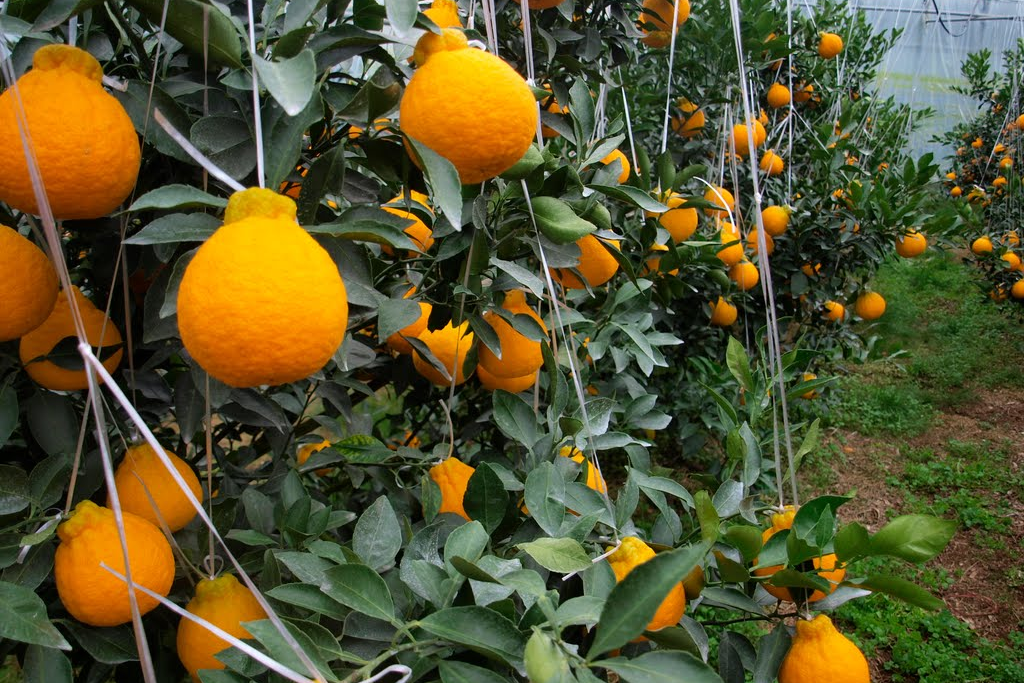
Where to try it
Visit the Seogwipo Maeil Olle Market to sample freshly picked Hallabong and discover products like jams and candies made from this iconic citrus.
Conclusion
Jeju Island food is a celebration of the island’s natural bounty and cultural traditions. From smoky grilled black pork to the sweet refreshment of Hallabong tangerines, each dish offers a unique and unforgettable taste of Jeju. Exploring these 8 dishes not only satisfies your appetite but also connects you to the heart of Jeju’s culinary heritage.
Follow Recago for more exciting travel tips!

